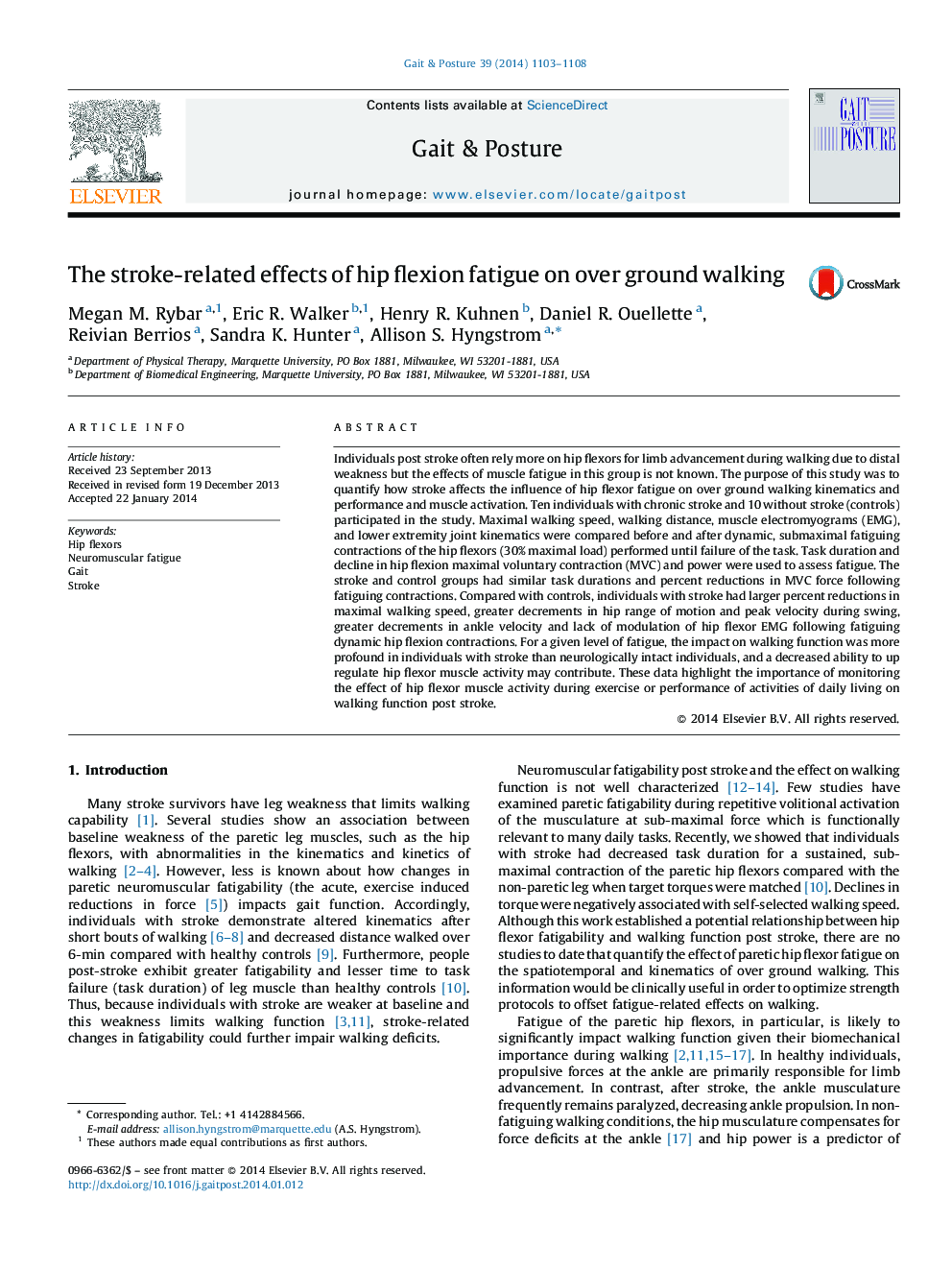| کد مقاله | کد نشریه | سال انتشار | مقاله انگلیسی | نسخه تمام متن |
|---|---|---|---|---|
| 6206311 | 1265643 | 2014 | 6 صفحه PDF | دانلود رایگان |
- Ten individuals with chronic stroke and 10 without stroke (controls) participated.
- Both groups had similar task durations and reductions in MVC force post-fatigue.
- Individuals with stroke had larger percent reductions in walking speed.
- Individuals with stroke had greater decrements in hip and ankle kinematics.
- At a given level of fatigue, impact on walking function was more profound in stroke.
Individuals post stroke often rely more on hip flexors for limb advancement during walking due to distal weakness but the effects of muscle fatigue in this group is not known. The purpose of this study was to quantify how stroke affects the influence of hip flexor fatigue on over ground walking kinematics and performance and muscle activation. Ten individuals with chronic stroke and 10 without stroke (controls) participated in the study. Maximal walking speed, walking distance, muscle electromyograms (EMG), and lower extremity joint kinematics were compared before and after dynamic, submaximal fatiguing contractions of the hip flexors (30% maximal load) performed until failure of the task. Task duration and decline in hip flexion maximal voluntary contraction (MVC) and power were used to assess fatigue. The stroke and control groups had similar task durations and percent reductions in MVC force following fatiguing contractions. Compared with controls, individuals with stroke had larger percent reductions in maximal walking speed, greater decrements in hip range of motion and peak velocity during swing, greater decrements in ankle velocity and lack of modulation of hip flexor EMG following fatiguing dynamic hip flexion contractions. For a given level of fatigue, the impact on walking function was more profound in individuals with stroke than neurologically intact individuals, and a decreased ability to up regulate hip flexor muscle activity may contribute. These data highlight the importance of monitoring the effect of hip flexor muscle activity during exercise or performance of activities of daily living on walking function post stroke.
Journal: Gait & Posture - Volume 39, Issue 4, April 2014, Pages 1103-1108
